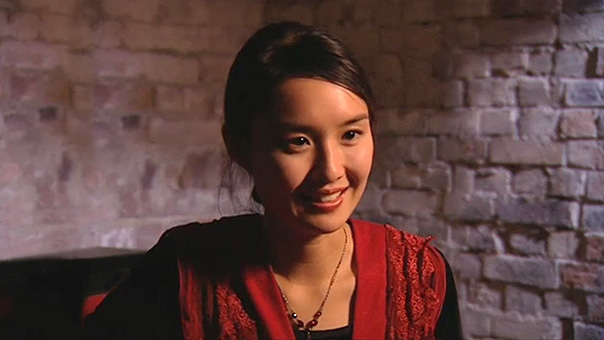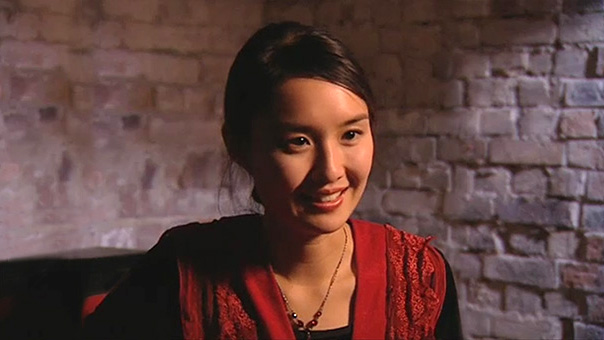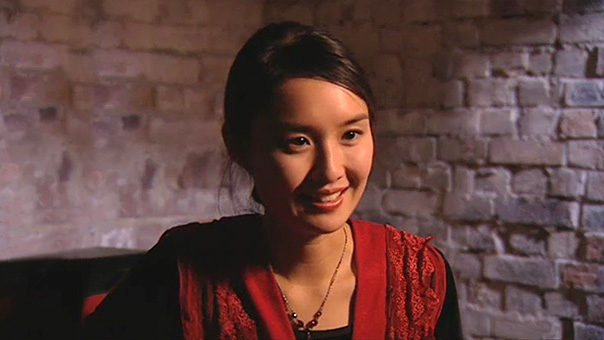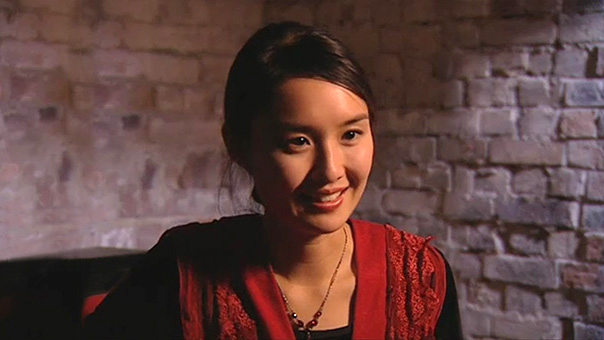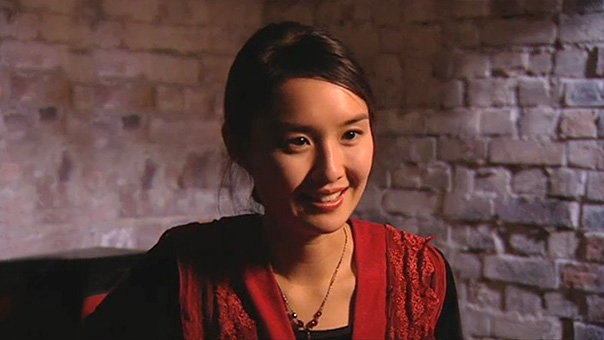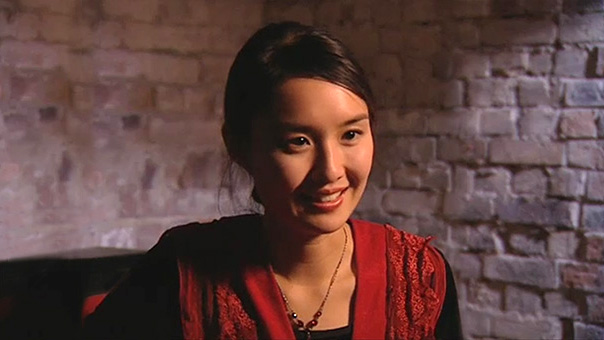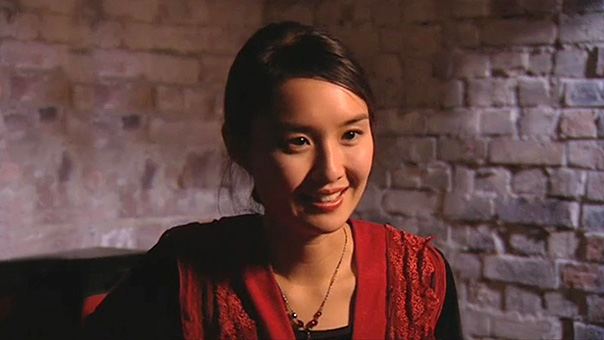Interviewer, Christine McGuigan: You write about three generations in Unpolished Gem. How did you decide on those central characters and why did you choose them?
Alice Pung: Oh, on my central characters, myself, my grandmother and my mother? They were just the strongest characters that emerged
and they had the biggest influence in my growing-up years. My grandmother, I, you know, I was very, very close to. We shared
the same bed up 'til I was about eight-and-a-half, when she moved out of our house. And then it was just me and my mother.
And my mother, because she worked at home as an outworker, I saw her a lot of the time. You catch their cadences, the way
they speak, you know the stories they tell, and also, most importantly, their fears and their aspirations. A lot of adults
don't realise that they, they might tell their kids one thing, you know, you'll be brave and you'll be strong, but if they're
fearful people or if they're angry people or, you know, those things get passed on, subconsciously. So those were the emotions
that motivated me.
Christine: What considerations did you have to weigh up before embarking on this journey?
Alice: Well when you're deciding to write a story about other people, I think you have an obligation towards them and you can only
do it with good intentions. You know, some authors might feel differently. Every single character I wrote about in Unpolished Gem, you know I - even characters that slightly grated on me, even my mother who annoyed me during my adolescence - there is
an undercurrent of love and affection and that was what I hoped came across in the book. I really would not have written it
if I had been driven by other desires, you know, desire to get even at people, or the desire to make fun of other people.
My grandmother in my book, and in real life, had a stroke and eventually dies and I did feel an obligation towards them because
when I was growing up they gave me most of my stories but there was no way they had much of a voice in the outside world.
My mother couldn't read or write in English and my grandmother came here in her 70s. Even now I have people asking me, quite
benign well-intentioned people, saying, you know, 'Your mother's been here almost 30 years and you're a writer, how come she
can't even speak English?' And when, when she was growing up in Cambodia, they closed down the Chinese schools when she was
in Grade 2 as part of, you know, the beginning of ethnic cleansing. And so she can't read and write in her native, barely
in her original language. It's almost like an Australian going to Japan and being asked to write in Japanese when you're illiterate
in English. And then if you couple that with four kids and having to work to, you know, bring them up and send them to school,
it's very difficult for you to have time to learn English. I couldn't tell a false story so I couldn't tell a very Pollyannaish
story about how, how these three generations of women sat around weaving and telling stories and playing Mahjong, you know.
Christine: You use a lot of humour in your writing. Does that come from your grandmother or your mother? Was there humour in the play
of words in your family?
Alice: There wasn't a lot of laughter in the play of words, particularly between my mother and my grandmother. I think I describe
my grandmother as having bones in her words. So, you can't laugh when you're choking on bones. My mother and my grandmother
had a very tense relationship. They did find some things hilarious but generally they were quite tense, you know, the standard
Chinese in-law type of, almost like a stereotype but it did happen in our family. I think where the humour specifically derives,
and this is something that is not written in the book and doesn't shine through, but my father. My father has a wonderful
sense of humour. The voice, people say, well this is a unique Australian voice. It really isn't, it's probably more of my
father's voice than anything else. When he was surviving the Killing Fields, you know, there was starvation, he had to bury
his friends and all these awful things happened but he doesn't talk about it that much except when we're at a restaurant for
instance, you know, a while back he ate some calamari. He said, 'This calamari's good but not as good as that belt I ate back
in 1976'. And I discovered he'd actually eaten a belt he'd taken 'cause they, they had starved.
